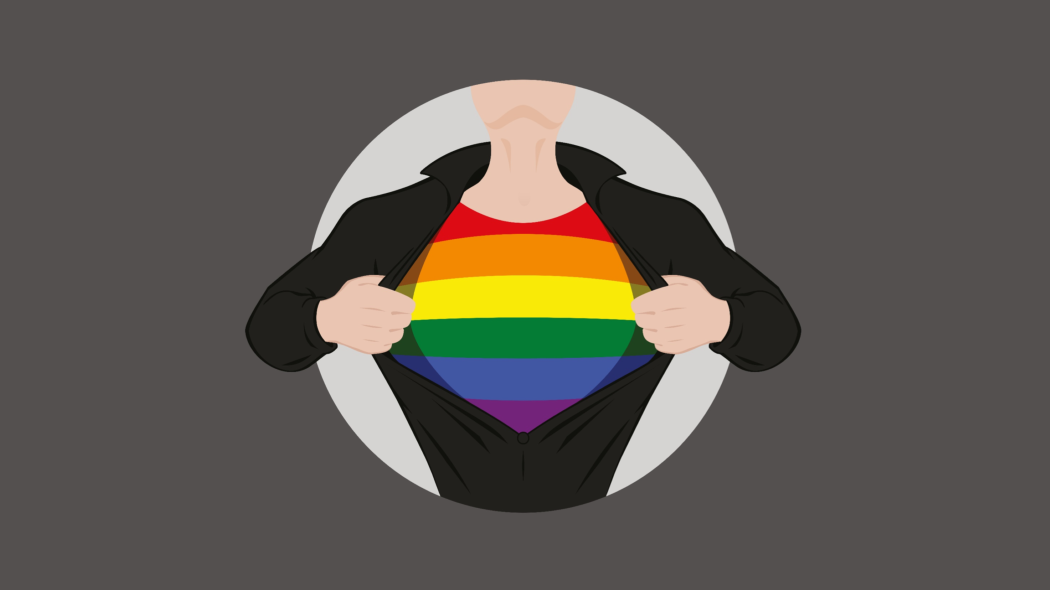In order to foster inclusivity and support our colleagues, gaining a better understanding of gender and taking steps to educate and hold ourselves accountable is critical. In this article, we take a look at how people can embrace pronouns in the workplace and in their communities to build a more inclusive culture.

At Cigna, diversity, equity, and inclusion (DEI) is not only a priority, it’s a critical part of our company culture. We believe that we are stronger when we bring our different perspectives and experiences to the workplace, and we want every employee to feel a sense of belonging so they’re able to reach their fullest potential.
Building a diverse and inclusive work culture isn’t just the right thing to do, it’s also good for business.
According to a 2019 McKinsey analysis, companies in the top quartile for gender diversity on executive teams were 25% more likely to have above-average profitability than companies in the bottom quartile. Similar results have been found for ethnic and cultural diversity across company levels, demonstrating that the most diverse and inclusive companies are also likely to be the most profitable and successful.
At Cigna, our commitment to DEI is a critical cornerstone of our mission to improve the health, well-being, and peace of mind of customers and employees alike. Understanding gender identity and pronoun use is a key aspect of this commitment and is relevant to everyone – not just those who are in the LGBTQ+ community or those who identify as gender non-conforming.
“Understanding gender is an integral part of one’s identity and helps to build a psychologically safe work environment for gender diverse and LGBTQ+ people,” says Terlandra Buckner, diversity lead analyst, Cigna.
In order to foster inclusivity and support our colleagues, gaining a better understanding of gender and taking steps to educate and hold ourselves accountable is critical. Below, we take a look at some of the ways that people can embrace pronouns in the workplace and in their communities to build a more inclusive culture.
Choose Your Words Wisely
From widely used terms like “mailman” and “businessman” to even the signs that designate restrooms, often labeled “men” and “women” – gendered language is all around us. Even if we may not realize it, this type of language can be harmful to both cisgender and transgender individuals alike. While binary language tends to uphold outdated notions and stereotypes about groups of people and perpetuate harmful assumptions, gender neutral language benefits all and harms no one.
“Language is the primary filter through which we see the world – how we relate to, make judgements about, and communicate with people,” noted Olivia Horwitz, associate in Cigna’s Managed Care Rotational Program and member of Cigna’s Pride ERG leadership team. “Terms and labels can help to create community among LGBTQ+ individuals who identify similarly and to facilitate understanding among those who identify differently. Language is one of the simplest, easiest, and most common ways to support members of the LGBTQ+ community.”
Share Your Identity
An HRC Foundation study found that 46% of LGBTQ+ workers say they are closeted at work, and one in five LGBTQ+ workers report hearing jokes about lesbian or gay people at least once in a while. Suppressing and making fun of a particular community creates a hostile and unsafe work environment. By encouraging all employees to share and respect one another’s identities, we can create a more inclusive and respectful culture.
“Hearing people express their identity can give you the language you need to express your own,” added Horwitz. For some individuals, mainly those who are cisgender, pronouns might not seem that important because they’ve never had to worry about someone invalidating them with incorrect pronoun use. Other individuals, especially gender non-conforming people, constantly fear that someone will make harmful and false assumptions about their gender identity and pronouns based on their appearance or name. In the workplace and beyond, sharing one’s pronouns, as well as understanding and using others’ pronouns is a meaningful way to support and respect one another.
At Cigna, you can add your pronouns to your email signature, and even self-identify your gender identity on Workday. Cigna employee Rachel Wright said: “I am so thankful to have a company that supports not only me and my identity, by my peers and co-workers as well. It really shows compassion and understanding when a company can include everyone, no matter what their gender or identification is.”
Build Your Knowledge Base
One of the most important ways to grow, develop new perspectives, and be an ally to the LGBTQ+ community is through education.
Here are some key resources to educate yourself on gender diversity and pronouns:
- Mypronouns.org provides information on the use of personal pronouns
- American Psychological Association’s Fact Sheet: Non-Binary Gender Identities
- Out and Equal’s Non-Binary-Best-Practices for the workplace and beyond
- The LGBTQ+ community, specifically transgender and non-binary people, face specific health care needs and obstacles. Cigna provides information and resources on LGBTQ+ health
- Cigna employees can access trainings and more information on gender diversity through programming put on by our Pride ERG, as well as through our employee learning and development platform, MyUniversity
Hold Yourself and Those Around You Accountable
To hold yourself accountable, make a conscious effort to learn about gender identity and pronoun use. If you don’t know or forgot someone’s pronouns, ask for their pronouns or use their name and gender neutral pronouns, such as they/them. Using gender neutral language and someone’s pronouns signifies respect and understanding. On the other hand, ignoring pronouns or purposely calling someone by the wrong pronouns implies the oppressive notion that gender non-conforming individuals do not or should not exist.
That being said, if you misgender someone, you can apologize, commit to do better, and practice using the proper pronouns.
Approaching the situation with empathy and respect is always appreciated and signifies that even if you make a mistake, you can still be an ally by seeing the situation as an educational opportunity, actively learning, and holding yourself accountable. Furthermore, don’t be afraid to correct improper use of pronouns or names. We can all work to educate and hold one another accountable in a respectful way, serving as allies to the LGBTQ+ community.
Be Open to Discussions
While challenging your understanding of long-held beliefs can be difficult at times, conversations about topics like gender diversity and pronouns are great opportunities to broaden your perspective and facilitate growth. By being open to discussions with colleagues, family, and friends about the importance of inclusivity as it relates to understanding gender, we can all learn from each other. Approaching these types of conversations with respect and compassion can also demonstrate allyship and support to the important people in our lives.
In the words of Cigna employee Pamela Churchill, “When one can open their mind to thinking differently, or not assuming someone’s gender based on how they look, and understanding the importance of using people’s pronouns, we can all make the world a better, more welcoming, and inclusive place for all people.”

Cigna's Diversity, Equity, and Inclusion Commitment
At Cigna, we stand for diversity, equity, and inclusion, and we are committed to respecting differences, treating each other fairly, and standing together.